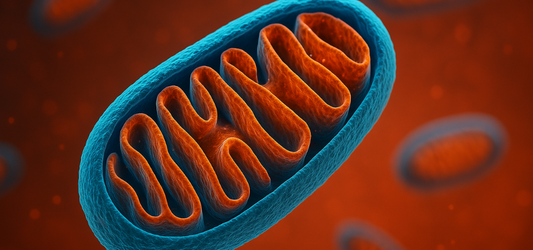The longevity boosting benefits of daily vitamin D

Researchers have discovered that vitamin D supplements might do more than strengthen bones—they could help protect the cellular structures that control how we age. A new study suggests that taking 2,000 IU of vitamin D daily may preserve telomeres, the protective caps on our chromosomes that naturally shorten as we get older.
The Cellular Timekeepers That Control Aging
Think of telomeres as the plastic tips on shoelaces, but for your DNA. These tiny protective structures cap each of our 46 chromosomes, preventing damage every time a cell divides and replicates. The problem? They get shorter with each division.
When telomeres become too short, cells stop dividing and eventually die. This process drives many hallmarks of aging, and shortened telomeres have been linked to major age-related diseases including cancer, heart disease, and osteoarthritis. Factors like chronic stress, smoking, and depression can accelerate this shortening, while inflammation throughout the body also contributes to the process.
Understanding telomere biology has become crucial for longevity research because these structures essentially function as cellular clocks, marking how much "time" each cell has left.
How Vitamin D Might Slow Cellular Aging
The recent research from Augusta University followed 1,031 adults with an average age of 65 over five years. Participants were randomly assigned to take either 2,000 IU of vitamin D daily or a placebo, with their telomere lengths measured at the start, after two years, and again after four years.
The results were striking: those taking vitamin D maintained their telomeres by 140 base pairs compared to the placebo group. To put this in perspective, telomeres naturally shorten by roughly 460 base pairs over ten years. This means vitamin D supplementation potentially preserved about 30% of the telomere length that would normally be lost during the study period.
This preservation effect suggests vitamin D might influence cellular aging mechanisms beyond its well-known roles in bone health and immune function. The vitamin appears to support the cellular machinery responsible for maintaining these crucial chromosome caps.
Beyond Bone Health: Vitamin D's Expanding Role
Most people associate vitamin D with calcium absorption and bone strength—and for good reason. Children, teenagers, and individuals with darker skin or limited sun exposure particularly need adequate levels to maintain skeletal health. But research continues to reveal broader functions.
Vitamin D supports immune system regulation, with evidence showing supplements can reduce respiratory infection risk, especially in deficient individuals. The vitamin also influences muscle function, cardiovascular health, and now potentially cellular aging processes.
This expanding understanding reflects how many nutrients work in the body—not as single-purpose compounds, but as multifaceted molecules that support interconnected biological systems.
What the Science Still Can't Answer
Despite these promising findings, researchers urge caution about drawing definitive conclusions. Some scientists point out that excessively long telomeres might actually increase disease risk, suggesting there could be an optimal range that remains unclear.
The study also raises questions about dosage, duration, and individual variation. Would lower doses provide similar benefits? How long do people need to supplement to see effects? Do genetic differences influence who responds best to vitamin D for telomere preservation?
Additionally, the participants were older adults, so it's uncertain whether younger people would experience similar telomere protection or if starting supplementation earlier in life would provide greater benefits.
The Bigger Picture of Healthy Aging
While vitamin D supplementation shows promise for cellular health, experts emphasize it shouldn't be viewed as a standalone anti-aging solution. The strongest evidence for maintaining long-term health and supporting telomere length naturally still points to fundamental lifestyle factors for healthy aging.
Regular exercise, balanced nutrition, adequate sleep, stress management, and avoiding smoking all support telomere health through multiple pathways. These approaches work synergistically—exercise reduces inflammation while improving stress resilience, quality sleep supports cellular repair processes, and nutrient-dense foods provide the building blocks for healthy cell division.
Vitamin D supplementation might complement these foundational practices rather than replace them. The vitamin could be one piece of a comprehensive approach to healthy aging that addresses cellular health from multiple angles.
As scientists continue mapping how aging works at the molecular level, vitamin D may prove to be an important but not singular factor in maintaining cellular vitality. The research suggests that supporting our body's natural protective mechanisms—whether through sunlight, supplements, or lifestyle choices—could help preserve the cellular structures that influence how we age.
For now, the evidence points toward vitamin D as a potentially valuable tool in the broader toolkit of healthy aging strategies, working alongside the time-tested fundamentals of wellness that support longevity from the ground up.



